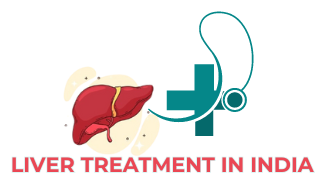The Journey Begins: Understanding Post-Liver Transplant Recovery
Receiving a liver transplant marks the beginning of a new chapter in one’s life, offering hope and a chance at renewed health. The journey after liver transplant surgery is critical, requiring dedication, patience, and a comprehensive approach to recovery. This guide explores essential strategies for navigating post-transplant life successfully, covering various aspects from medical care to lifestyle adjustments.
The Importance of Choosing the Right Medical Team
Your recovery journey starts with selecting the best liver transplant hospital and surgeon. India has emerged as a hub for top-rated liver transplant hospitals, boasting skilled liver surgeons and state-of-the-art facilities. When making this crucial decision, consider the following factors:
- Hospital’s track record in liver transplantation
- Expertise of liver transplant surgeons
- Quality of post-operative care
- Availability of advanced medical equipment
- Patient testimonials and success rates
Navigating Post-Surgery Care and Monitoring
After undergoing liver replacement surgery, meticulous care and regular monitoring become paramount to ensure a smooth recovery process.
The Role of Follow-up Appointments
Regular check-ups with your liver transplant surgeon and liver treatment doctor are crucial for:
- Monitoring recovery progress
- Early detection of potential complications
- Adjusting medication and treatment plans
- Addressing any concerns or questions
Building a Relationship with Your Medical Team
Establishing open communication with your healthcare providers is essential. Don’t hesitate to discuss any symptoms, side effects, or concerns, no matter how small they may seem.
Embracing a Healthy Lifestyle Post-Transplant
A successful liver transplant recovery extends beyond medical care. Adopting a healthy lifestyle is crucial for long-term success and overall well-being.
Key Components of a Healthy Post-Transplant Life
- Balanced Nutrition: Work with a dietitian to create a meal plan that supports liver health and overall recovery.
- Regular Exercise: Gradually incorporate physical activity as approved by your doctor to improve strength and cardiovascular health.
- Adequate Rest: Ensure you get enough sleep to support healing and boost immunity.
- Stress Management: Practice relaxation techniques like meditation or yoga to manage stress levels.
The Importance of Medication Adherence
Adhering to your prescribed medication regimen, particularly immunosuppressants, is critical in preventing organ rejection. Create a system to remember your medication schedule and communicate any concerns about side effects with your doctor promptly.
Recognizing and Responding to Emergency Situations
While the goal is a smooth recovery, being prepared for potential emergencies is crucial.
Signs That Require Immediate Attention
- Fever or chills
- Severe abdominal pain
- Jaundice (yellowing of skin or eyes)
- Unusual bleeding or bruising
- Significant changes in mental state
Knowing the contact details and location of the nearest emergency liver transplant center can be life-saving in critical moments.
Special Considerations for Pediatric Liver Transplants
For younger patients, the recovery process requires specialized care and attention.
Choosing Pediatric Liver Transplant Centers
Selecting a hospital with experienced pediatric liver transplant specialists ensures:
- Age-appropriate medical protocols
- Specialized surgical techniques for smaller patients
- Comprehensive follow-up care tailored to children’s needs
- Support for families throughout the recovery process
The Power of a Supportive Network
The emotional and psychological aspects of recovery are equally important as the physical ones.
Building Your Support System
- Family and Friends: Surround yourself with loved ones who can provide emotional support and practical help.
- Support Groups: Connect with other transplant recipients to share experiences and coping strategies.
- Mental Health Professionals: Many top liver transplant hospitals offer counseling services to address the psychological aspects of recovery.
Celebrating Milestones in Your Recovery Journey
Acknowledge and celebrate every achievement, no matter how small. These moments of recognition can boost morale and reinforce your commitment to a healthy post-transplant life.
Living Donor Transplants: A Unique Recovery Journey
In cases of living liver transplant, both the donor and recipient require careful post-operative care and support.
Key Considerations for Living Donors and Recipients
- Regular check-ups for both individuals
- Emotional support and counseling services
- Gradual return to normal activities as advised by medical professionals
Conclusion: Embracing Your New Lease on Life
A successful post-transplant life involves a holistic approach, combining expert medical care, lifestyle adjustments, and a strong support system. By choosing the best liver transplant hospital, adhering to follow-up care, embracing a healthy lifestyle, and building a supportive network, you can maximize your chances of a thriving life after liver transplant surgery.
Remember, your journey is unique, and with the right care, mindset, and support, you can embrace this new chapter with optimism and vigor. Trust in the expertise of your medical team, stay committed to your recovery plan, and look forward to the many possibilities that lie ahead in your renewed life post-transplant.

